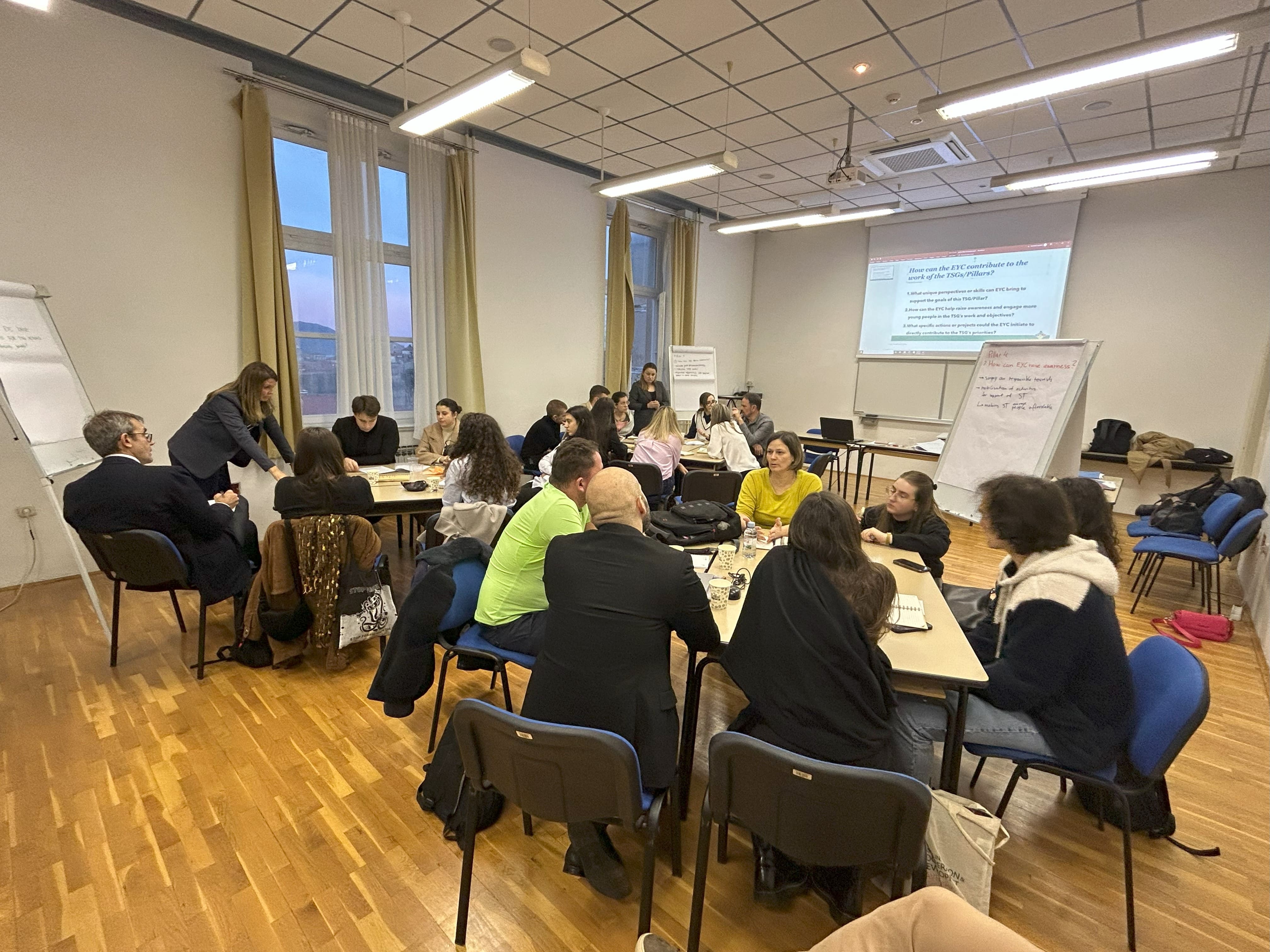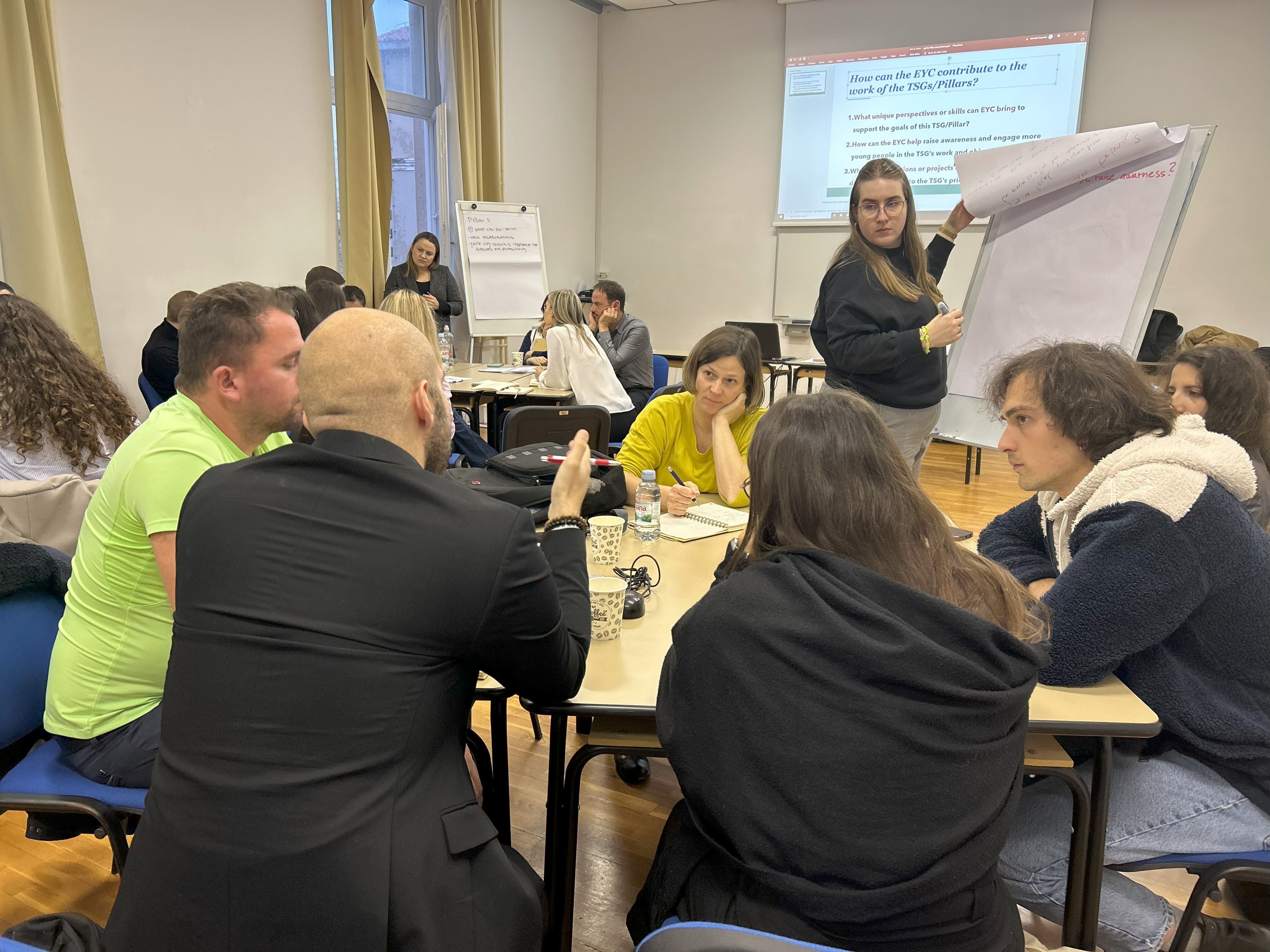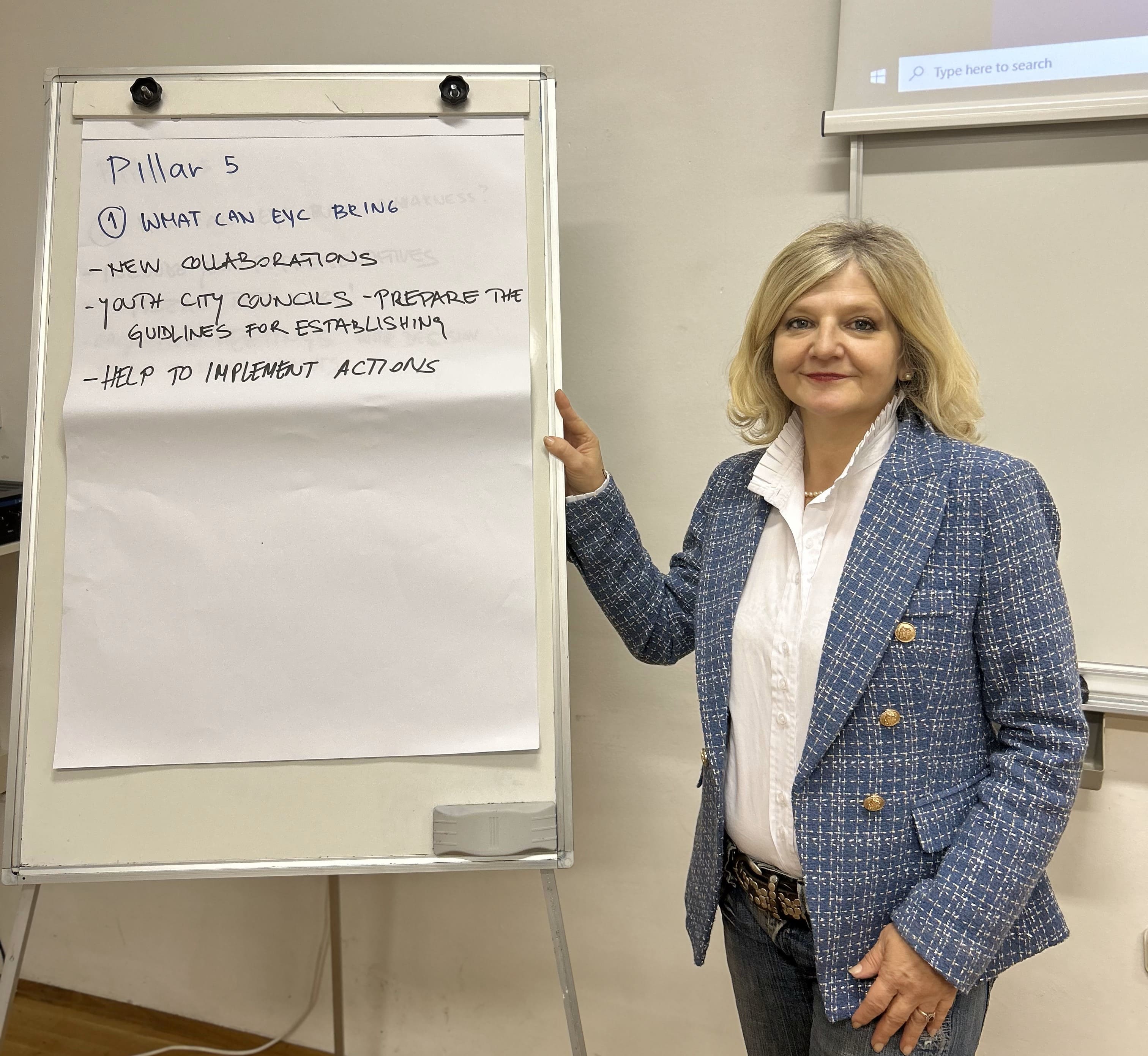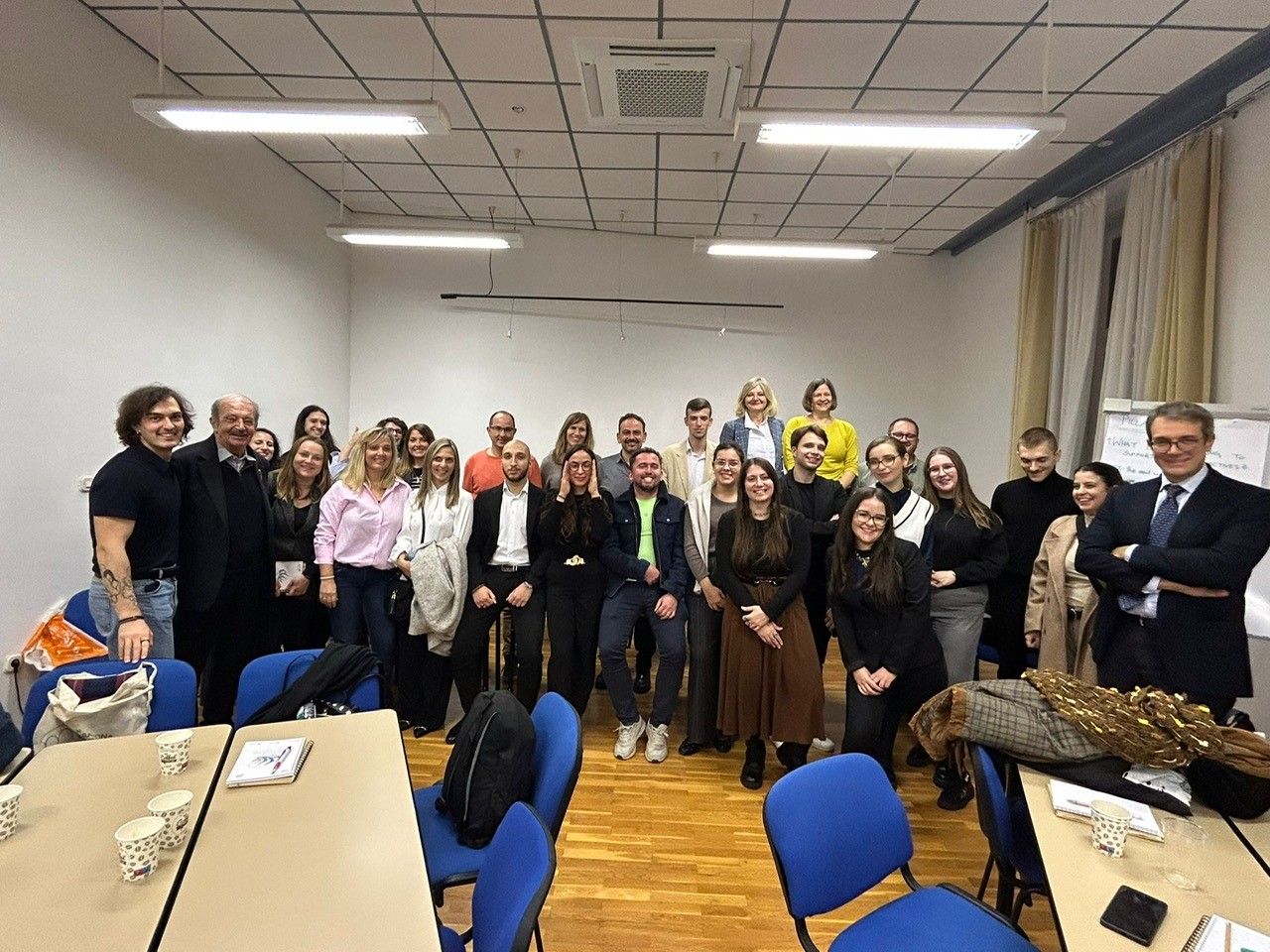On 22 November 2024, the inaugural meeting of the Youth Council, an independent advisory body within the EU Strategy for the Adriatic-Ionian Region (EUSAIR), took place in Dubrovnik. With this step, every macro-region has some kind of youth structure.
The conclusion of the first meeting of the EUSAIR Youth Council was clear: if young people’s societal challenges transcend national borders and are similar across the Adriatic-Ionian region, they should be addressed at that level. The Council comprises two young representatives under 30 from each of the 10 EUSAIR member countries, selected from 185 applications received from all 10 EUSAIR participating countries. As an independent advisory body, its mission is to contribute fresh perspectives and expertise to the work of EUSAIR experts. It will primarily collaborate with coordinators of the Strategy’s five thematic pillars and the Governing Board, as well as youth councils from other EU macro-regional strategies.



„Many young people in the Adriatic-Ionian region face similar daily challenges, such as the increasing migration of peers to Western countries for work or environmental issues. Through cooperation and experience-sharing, we are confident these ambitious young individuals can develop effective solutions. After all, cultural exchange in this region is nothing new. As we observed during the Dubrovnik meeting, they are well-acquainted with the region’s circumstances and frequently discuss them. Through the EUSAIR Youth Council, we aim to provide them with additional opportunities for collaboration,” said Lidija Pansegrau Hadrović, the national coordinator for EUSAIR and the EU Strategy for the Danube Region from Croatia’s Ministry of Foreign and European Affairs.
The process of institutional inclusion of young people into the Strategy and the establishment of the Youth Council was started in 2020, receiving great acceleration and attention during the Croatian Presidency of the EUSAIR (June 2023-June 2024). It is no wonder that the founding meeting was organised in Dubrovnik altough the Strategy is currently chaired by Greece. Young people gathered at the CAAS University Center, where they learned about the Strategy for two and a half days, got to know each other, and actively participated in discussions on how to include new ideas and make the Strategy more attractive, contributing to the development of the macro-region itself.
At the founding meeting in Dubrovnik, participants deepened their knowledge through lectures on European funds, cohesion policy, and macro-regional strategies. Coordinators presented the foundations and operations of EUSAIR’s five thematic pillars: Blue Growth, Connecting the Region (transport and energy), Environmental Quality, Sustainable Tourism, and Social Cohesion. The recently established fifth pillar, also known as the Social Pillar, is coordinated by Croatia and Bosnia and Herzegovina, while the fourth pillar, Sustainable Tourism, is coordinated by Croatia and Albania.
In group discussions, participants explored potential solutions to regional challenges and possible actions within EUSAIR, while also assigning roles and functions within the Youth Council.
Croatian representatives Lara Šare and Antonio Grujevski highlighted the importance of familiarizing themselves with the Council’s key topics and operations.
„Since the Youth Council is a wonderful community of forward-thinking young people, I expect that together we can contribute to positive changes in our macro-region. I aim to bring a fresh sense of hope to young people in Croatia, showing them that their voices can be heard and that active efforts are underway to foster socio-economic development in the region they grew up in. Perhaps this will motivate them to stay in our macro-region instead of moving abroad. Ultimately, with the knowledge I gain through EUSAIR, I hope to launch my own project in the field of green or blue technology one day,” said Lara Šare, a student at the Faculty of Electrical Engineering and Computing in Zagreb.
„My motivation to join the Youth Council stemmed from EUSAIR’s platform for collaboration and connecting young people with shared goals—preserving our shared space and improving our regions through innovative approaches. I want to actively inform young people about EUSAIR’s main objectives and encourage their involvement. I believe that through collaborative work, we can create better opportunities for everyone, linking regions and building a sustainable future based on cooperation and innovation,” said Antonio Grujevski, an architect.
In a very lively discussion, young people touched on all areas of the strategy, and highlighted their thoughts and suggestions for improvement of each area. They were interested in all topics, and they especially touched on several topics, such as connectivity in the region, because they experienced firsthand how difficult it is to travel in the region during the off-season, between countries that are actually close but not well connected (either by plane, not to mention railways). The same topic is also related to sustainable tourism – the extension of the season, and they are also advocates of “slow travelling”. They were interested in all topics from pillars – in addition to the ones mentioned so far as environmental protection, social topics, blue economy etc.
The inaugural meeting also included representatives from the European Commission, which supports the work of the EUSAIR Youth Council and other youth councils within the three remaining EU macro-regional strategies—the Danube, Alpine, and Baltic strategies.
